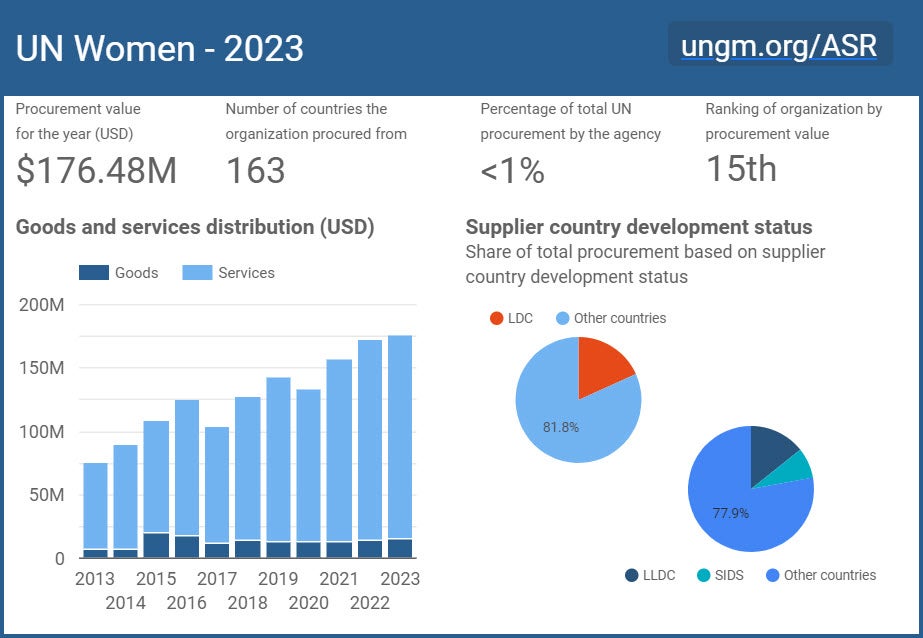
Doing business with UN Women
Procurement has been identified as an effective tool to economically empower women and communities worldwide. UN Women is therefore at the front line of gender-responsive procurement and is looking to engage other entities (public, private, and UN organizations) to procure in a gender-responsive manner.
What we buy
In 2023, UN Women spent almost USD 176.5 million on the procurement of services, goods, and civil works in support of its mandate. The procurement of services comprises the greatest share of UN Women’s procurement activities. The following chart shows the distribution of UN Women’s purchased goods and services over the past few years (Source: UNGM: Procurement data by organization).

How we buy – The procurement process
The strategic objective of procurement is best achieved through the transparent and efficient use of public funds and by applying the most appropriate procurement methods to ensure best value for money.
To better understand UN Women’s procurement needs and participate in the solicitation processes, UN Women encourages potential vendors to regularly monitor procurement notices, published in the list of current solicitations, the United Nations Global Marketplace (UNGM) or the new Quantum platform.
Solicitation methods
Generally, four types of solicitation methods are applied to fulfil procurement requirements, and these methods may vary on a case-by-case basis. The following types of solicitations provide generic specifications and vary according to the estimated monetary value, nature and complexity of the procurement requirements.
- Micro-purchasing – Used for the procurement of readily available, off-the-shelf goods or standard-specification commodities.
- Request for quotation (RFQ) – Commonly used for the procurement of goods or straightforward services, or civil works that can be locally sourced.
- Request for proposals (RFP) – Used for the procurement of complex services and/or goods, where the desired inputs and/or outputs cannot quantitatively and qualitatively be expressed in sufficient details at the time the invitation is made.
- Invitation to bid (ITB) – Generally used for purchasing goods where the procurement volume promotes open international competition.
Contact us at [ Click to reveal ].